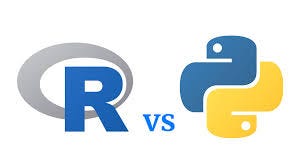Certifications & Languages That Matter: DataXplorer, May 2025
IES DS Issue 7, May 2025
Contents:
Python vs. R in 2025: Which Should You Master?
Certifications That Actually Matter (and Those That Don’t).
🐍 Python vs. R in 2025: Which Should You Master?
If you’re stepping into the world of data science in 2025, one question still dominates student forums, career chats, and classroom debates:
Should I learn Python or R?
The truth? Both languages are powerful, but choosing the right one depends on your goals, background, and the kind of problems you want to solve.
Let’s break it down.
🔍 Quick Verdict
📈 For industry jobs, software integration, and machine learning → Python
📊 For academic research, statistics-heavy work, and data exploration → R
🎓 For students and beginners → Start with Python, then explore R if needed
🐍 Python in 2025: The Industry Standard
Python has evolved far beyond a scripting language. In 2025, it’s a full-blown ecosystem for:
Machine Learning → Scikit-learn, TensorFlow, PyTorch
Data Analysis → Pandas, NumPy
Data Visualization → Seaborn, Plotly, Matplotlib
Web & App Integration → Flask, FastAPI, Streamlit
Big Data & Cloud → PySpark, Dask, AWS Lambda
✅ Why Learn Python?
Universally used in tech companies and startups
Plays well with AI, automation, and APIs
Huge community support and tutorials
Easy to integrate with web apps, dashboards, and production systems
💬 “Python is like the Swiss Army knife of data science — versatile, efficient, and production-ready.”
🧪 R in 2025: The Statistician’s Power Tool
R remains the go-to for data-driven research, academic publications, and advanced statistical modeling.
Popular in:
Biostatistics and Epidemiology
Finance and Economics
Psychological and Social Sciences
Government and Public Policy
✅ Why Learn R?
Built by statisticians, for statisticians
Incredible packages like ggplot2, dplyr, caret
RMarkdown and Shiny make beautiful reports and dashboards
Preferred in academia and research institutes
💬 “R is still the language of choice when precision and statistical nuance matter most.”
🎓 What Should Students Do in 2025?
If you’re:
👩🎓 A CS/Data Science student → Start with Python
🧑🔬 A Statistics/Economics/Biology major → Consider R for coursework
💼 Aiming for tech/data roles → Python is your best bet
📚 Interested in research or academia → R is still highly valuable
🎯 Pro Tip: Master one deeply, then get comfortable with the other as needed.
🏁 Final Thoughts
You don’t need to choose between Python or R forever. In fact, many data professionals today use both, depending on the task.
But if you’re looking for the most career-flexible, production-friendly, and in-demand option in 2025, Python is the clear winner. Still, if your path is more academic, statistical, or research-driven — R remains a powerful ally.
🎓 Certifications That Actually Matter (and Those That Don’t) in Data Science
In the fast-moving world of data science, certifications can seem like golden tickets. But do they really matter? And more importantly — which ones are worth your time, money, and effort?
Let’s break down what actually boosts your career in data science, and what might just be adding noise to your résumé.
✅ Certifications That Actually Matter
These certifications are well-regarded in the industry, cover practical tools, and help build real skills that employers value.
📘 1. IBM Data Science Professional Certificate (Coursera)
Why it matters:
A beginner-friendly path that covers Python, SQL, data analysis, and machine learning. Plus, it includes hands-on labs using real datasets.
💡 Great for: Students and career switchers looking to build a foundation.
🧪 2. Google Advanced Data Analytics Certificate
Why it matters:
Brand-new and created with job-readiness in mind. Focuses on data analysis, statistics, R, and machine learning — all backed by Google.
💡 Great for: Those aiming for analyst or junior data scientist roles.
📊 3. Microsoft Certified: Azure Data Scientist Associate
Why it matters:
Cloud platforms are crucial in real-world data workflows. This certification shows you’re skilled in deploying models and handling big data in Azure.
💡 Great for: Those interested in MLOps, cloud, and enterprise-level roles.
🧠 4. TensorFlow Developer Certificate
Why it matters:
Demonstrates hands-on skill in deep learning and model building using TensorFlow, a major ML framework in the industry.
💡 Great for: Aspiring machine learning engineers or those interested in AI.
📂 5. DataCamp Skill Tracks / Career Tracks
Why it matters:
While not formal certifications, DataCamp’s curated tracks are highly practical and cover topics like time series, NLP, and SQL.
💡 Great for: Continuous learning and building a broad, applied skillset.
🚫 Certifications That Don’t Really Help
Not all certifications add value — some are outdated, too theoretical, or not recognized in the industry.
❌ 1. “Masterclass”-Style Certificates Without Projects
You watched a few videos, took a quiz, and got a PDF. But without real projects or coding assignments, these certificates don’t demonstrate ability.
❗ Tip: If there’s no hands-on coding or capstone project, think twice.
❌ 2. Overpriced Bootcamp Certifications
Some bootcamps charge thousands for content that’s available online for free or cheaper. Name recognition matters — but only for top-tier bootcamps like Springboard, General Assembly, or Le Wagon.
❌ 3. Random Udemy Courses with 20+ Hours of Lecture Only
While Udemy can be a great learning platform, not all courses are created equal. Look for courses with assignments, real-world datasets, and active communities.
🧭 What Matters More Than a Certificate?
✅ A strong GitHub portfolio
✅ Real projects with end-to-end pipelines
✅ Soft skills like communication and storytelling
✅ Writing on platforms like Medium or LinkedIn
✅ Collaborating in hackathons or open-source projects
🎯 Certifications open doors — but skills and projects close the deal.
🏁 Final Thoughts
Certifications can be powerful when chosen wisely. They should support your learning journey, not replace it. Think of them as launchpads — not shortcuts.
So before you spend your weekend chasing a flashy PDF, ask yourself:
Will this help me solve real problems and build something worth sharing?
If yes — go for it. If not — time to pick a better path.





